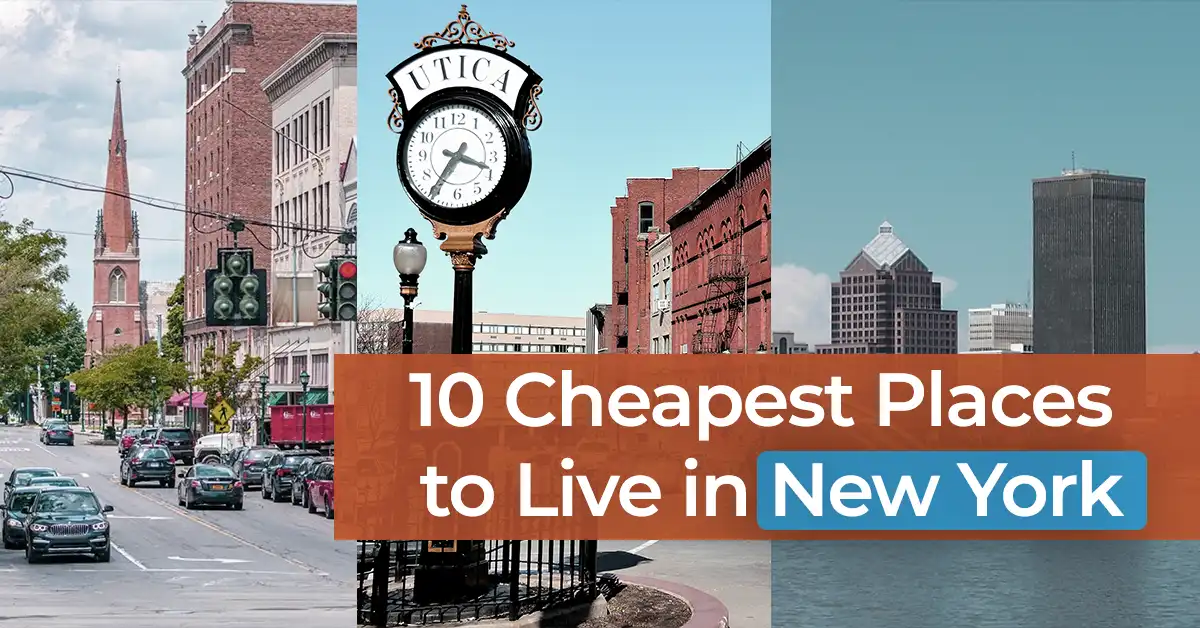Affordable housing: Living in some of the most desirable cities in the United States often comes with a hefty price tag. Cities like San Francisco, New York, and Seattle are renowned for their vibrant culture, job opportunities, and amenities—but they’re equally infamous for sky-high housing costs. However, securing affordable housing in expensive US cities is achievable with the right approach, tools, and strategies. This guide will walk you through actionable steps to make urban living more budget-friendly.
Table of Contents
Harness the Power of Online Tools
Technology has revolutionized the way people search for housing. Platforms like Zillow, Redfin, and Craigslist are indispensable resources for finding affordable rentals and properties in major metropolitan areas.
- Zillow: Offers detailed filters for price, size, location, and amenities. It also provides alerts for new listings that match your criteria.
- Redfin: Known for its real-time updates and user-friendly interface, Redfin is excellent for discovering rentals and homes for sale.
- Craigslist: While it requires vigilance to avoid scams, Craigslist often lists unique or non-traditional housing options, including sublets and shared living arrangements.
Pro Tip: Combine these tools to cast a wide net. Set alerts for multiple neighborhoods and act quickly when a suitable listing appears, as affordable options are often snatched up within hours.
Explore Co-Living Spaces
Co-living is gaining popularity as a cost-effective and community-oriented housing solution in expensive cities. Companies like Common, PodShare, and Bungalow offer shared housing arrangements where tenants rent private rooms while sharing common areas like kitchens and lounges.
Advantages of Co-Living:
- Lower overall rent compared to renting an entire apartment.
- Utilities, Wi-Fi, and maintenance are often included.
- Opportunities to build social connections and network with like-minded individuals.
Whether you’re a young professional, student, or digital nomad, co-living can provide a comfortable and affordable urban living experience.
Consider Alternative Housing Options
For those willing to think outside the box, alternative housing options can offer significant savings.
Tiny Homes
Tiny homes have become a popular choice for urban dwellers seeking simplicity and affordability. These compact, eco-friendly spaces are often located in suburban areas near major cities, providing a balance between cost savings and accessibility.
Micro-Apartments
Micro-apartments, typically ranging from 200 to 400 square feet, are designed for efficiency and affordability. Though small, these units are often located in prime urban areas with access to public transportation and amenities.
Accessory Dwelling Units (ADUs)
ADUs are smaller homes built on existing residential properties, often rented out at lower rates. Many cities are encouraging the development of ADUs to address housing shortages.

Leverage Government Assistance Programs
The Section 8 Housing Choice Voucher Program, administered by the Department of Housing and Urban Development (HUD), helps low-income families, seniors, and individuals afford housing in expensive areas.
Also Read:
How It Works
Qualified applicants receive vouchers that cover a portion of their rent, enabling them to live in privately owned housing. While waitlists can be lengthy, it’s worth applying if you meet the income requirements.
Other Programs
- Local Affordable Housing Initiatives: Many cities have programs aimed at increasing affordable housing availability, such as rent control or subsidized housing projects.
- Nonprofit Organizations: Groups like Habitat for Humanity and regional housing authorities often assist with affordable housing.
Maximize Your Budget with Negotiation and Flexibility
Affording housing in pricey cities often comes down to strategy.
Negotiate Rent and Lease Terms
When you find a place you like, don’t hesitate to negotiate. Landlords may be open to lower rent if the unit has been vacant for a while or if you’re willing to sign a longer lease.
Be Flexible with Location
Consider neighborhoods on the outskirts of the city or those undergoing revitalization. These areas often offer lower rents while still providing access to public transportation and city amenities.
Look for Roommates
Sharing a larger apartment or house with roommates can significantly reduce costs. Platforms like Roomster and SpareRoom specialize in connecting people seeking shared housing.
Network and Word of Mouth
Sometimes the best housing deals aren’t listed online. Networking can uncover hidden opportunities:
- Ask Friends and Colleagues: Let your social circle know you’re searching for affordable housing. They might know of available spaces or have connections with landlords.
- Join Community Groups: Local Facebook groups, Reddit threads, and neighborhood apps like Nextdoor can be goldmines for housing leads.
Cutting Costs Beyond Rent
Reducing overall living expenses can make housing in expensive cities more manageable. Here are a few strategies:
- Opt for Public Transportation: Avoiding car ownership can save thousands of dollars annually in parking, gas, and insurance.
- Cook at Home: Eating out in urban areas adds up quickly. Preparing meals at home can free up funds for rent.
- Utilize Free or Low-Cost Amenities: Many cities offer free public events, parks, and cultural activities. Taking advantage of these can enhance your quality of life without additional costs.
Stay Informed About Market Trends
Keeping an eye on the housing market can help you identify the best times to rent. For instance, winter months often see lower demand, which can translate into cheaper rental prices.
Research Local Housing Policies
Understanding rent control laws and tenant rights in your city can protect you from unfair practices and help you find more affordable options.
Finding affordable housing in expensive US cities is undoubtedly challenging, but it’s far from impossible. By leveraging online tools, exploring alternative housing options, taking advantage of government programs, and staying flexible, you can secure a home that fits your budget. The key is persistence, creativity, and a proactive approach to navigating the urban housing market.
Whether you’re a student, a professional, or a family, these strategies can help you thrive in cities where affordability often feels out of reach. Affordable housing in expensive US cities may seem like a lofty goal, but with these tips, it can become your reality.












